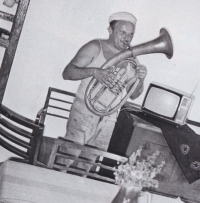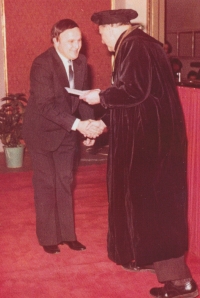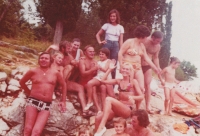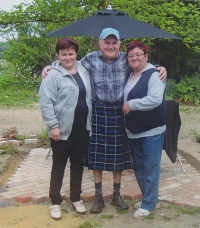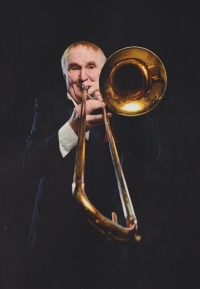Trombone in the attic brought him to music.
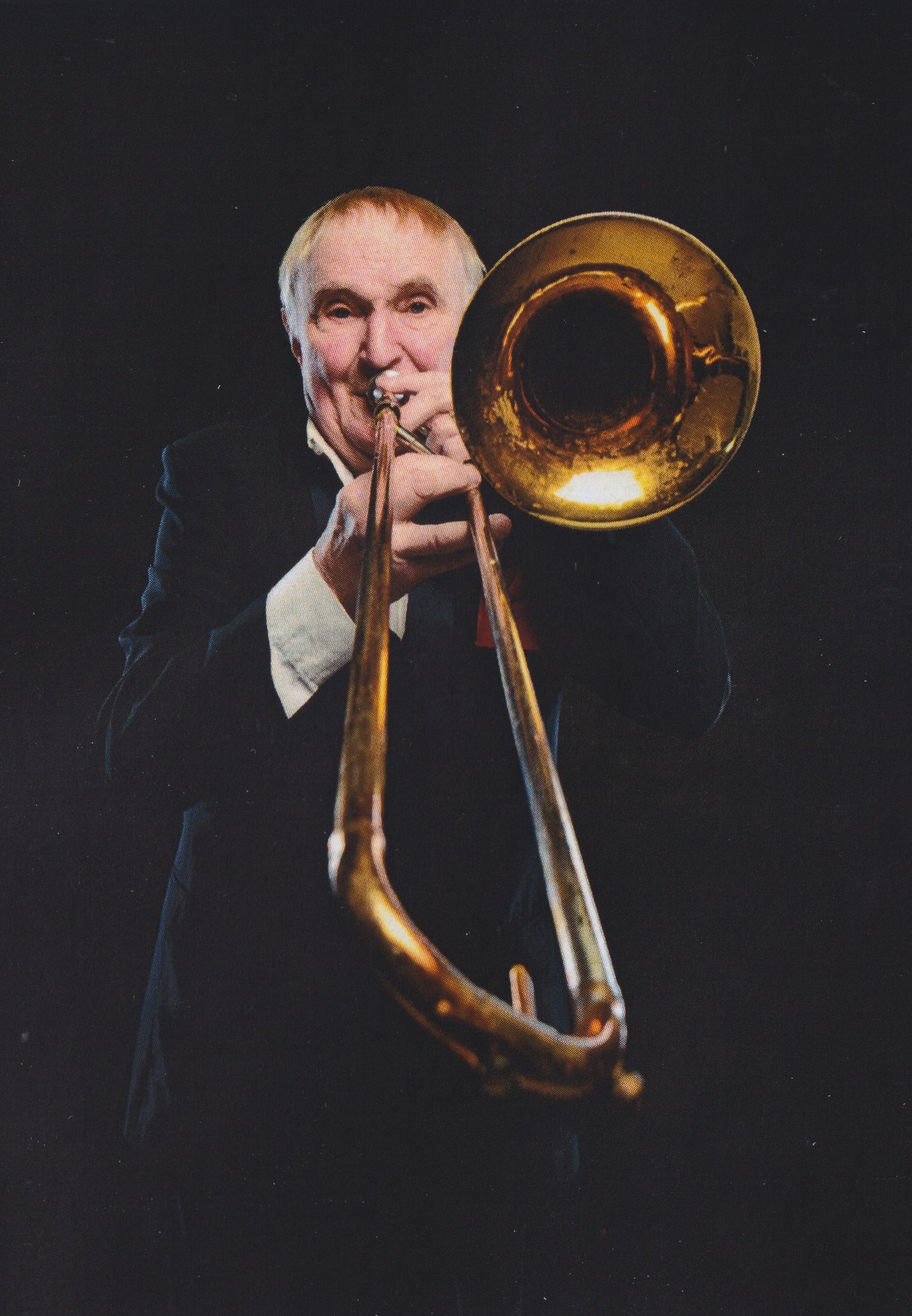
Stáhnout obrázek
Mojmír Bártek was born on 26 April 1942 in Vsetín. His father, MUDr. Adolf Bártek, joined the anti-Nazi resistance during the Second World War, for which he was arrested by the Gestapo and executed in February 1945 in the Kounice dormitories in Brno. After his death, Mojmír and his two brothers were taken care of by their mother Ludmila, a teacher. After the communist coup in February 1948, the family fell out of favour with the new regime because of his father‘s connections to the Western resistance and his democratic outlook. Despite this, the witness managed to graduate from the Vsetín Grammar School (then an eleven-year school) and later from the Brno Conservatory of Music (1963-1967) and the Janáček Academy of Performing Arts (1976-1980). From 1967 he worked for 40 years in Gustav Brom‘s orchestra as a soloist, arranger and composer and became an icon of domestic jazz music. For many years he also worked as a teacher at the JAMU composition department. At the time of the recording (2024), the witness was living in Brno.
